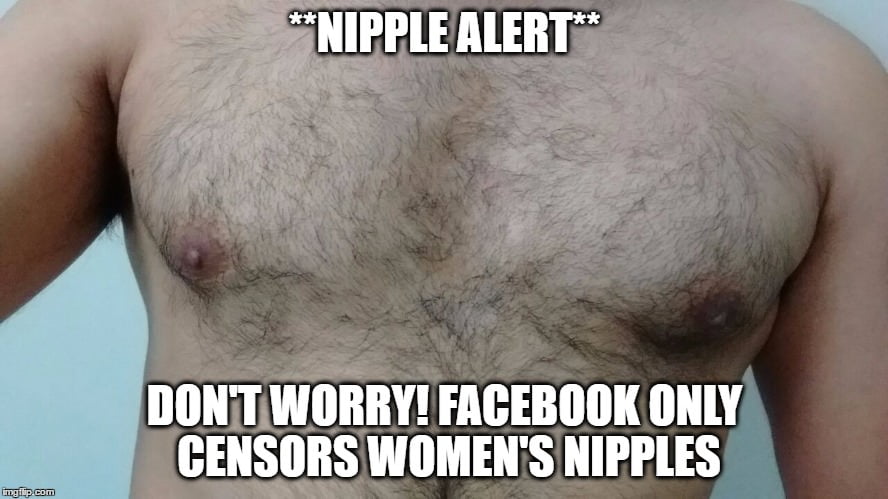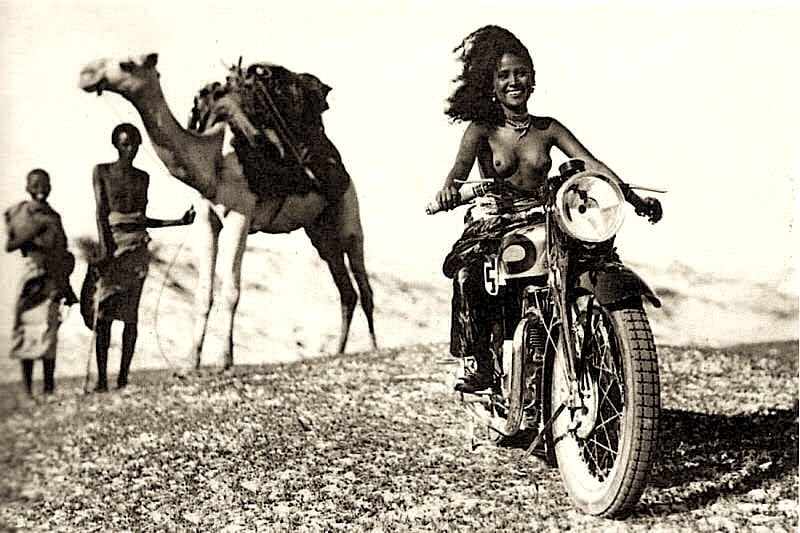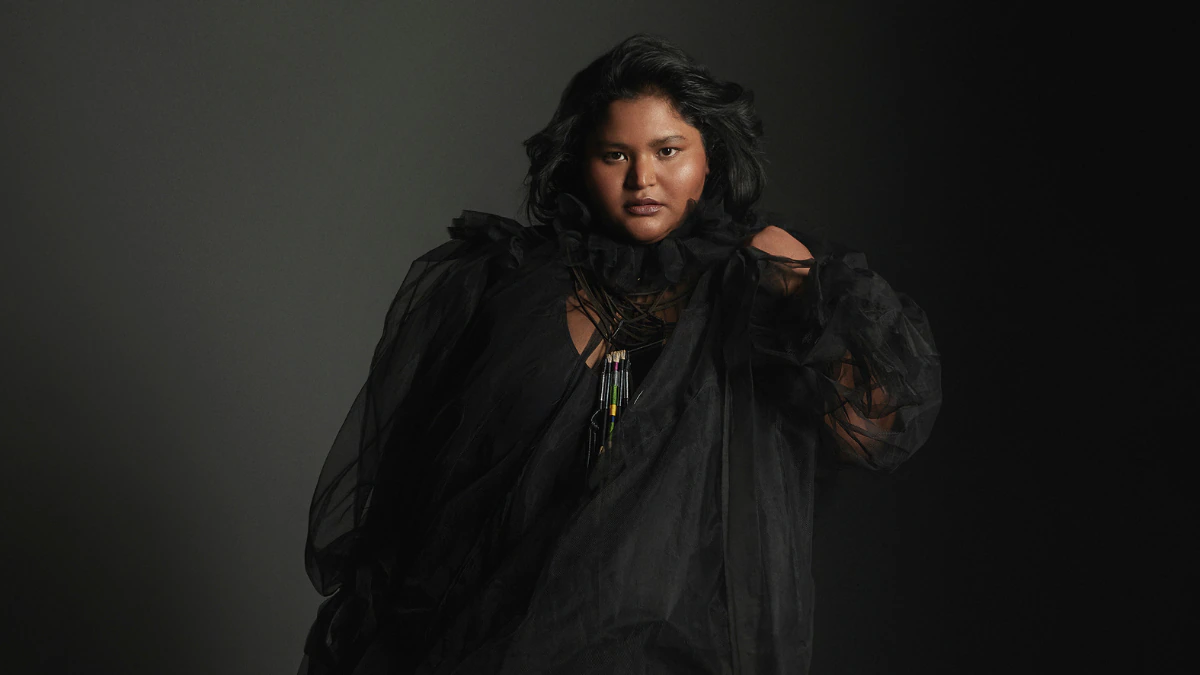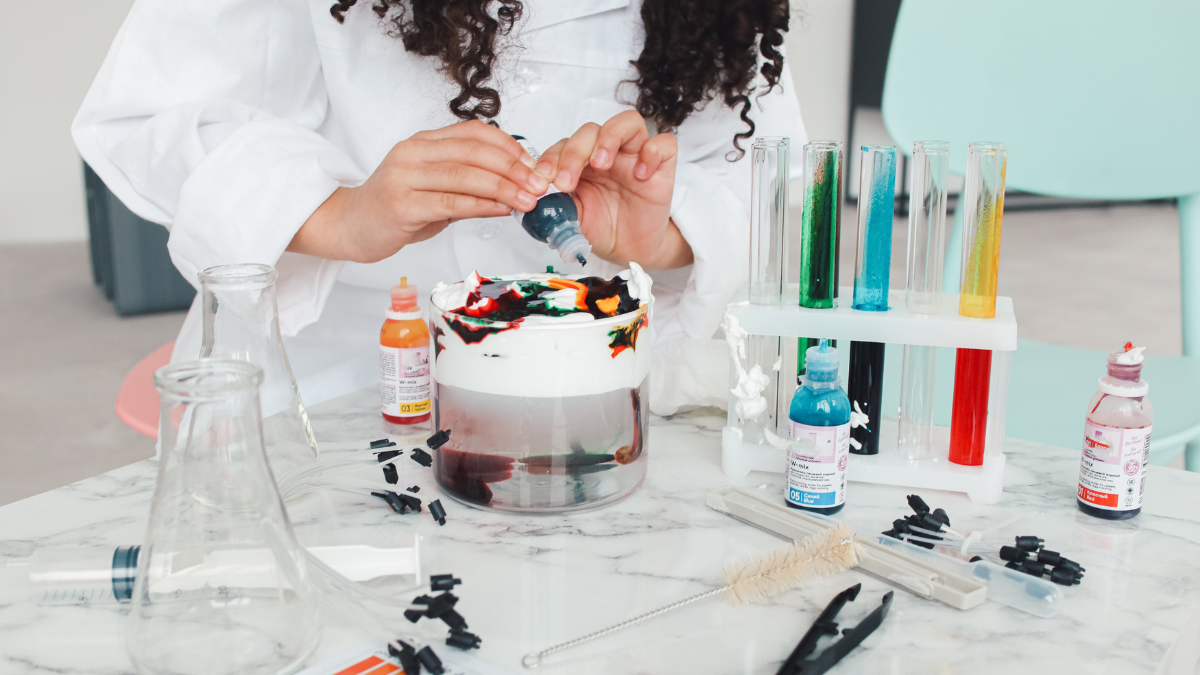Time and again, Facebook proves to be that Uncle who keeps telling you your skirt is too short, but keeps a stack of highly sexualized and objectifying images of women in his folder.
Facebook and I have had a difficult relationship when it came to women’s bodies, especially their breasts and nipples. The first time I was banned from Facebook for 24 hours was for posting this (below) beautiful picture of an African woman on a motocycle. Till date, this is my most favourite picture on the Internet and my cover pic on Twitter (Twitter, I love you for not censoring women’s nipples, please never never change) since I can remember.
FB removed my cover pic (same as here) and banned me for 24 hours. Bloody cowards! They fear female breasts! @facebook
— Japleen Pasricha (@japna_p) March 4, 2014
Next I was banned in 2015 again for 24 hours for sharing this beautiful poem by my dear friend and colleague Swetha Dandapani. The poem titled ‘Breasts’ has an image of a painting of breasts. These are not even real breasts and nipples, but a painting. Clarity question here: does Facebook censors real pictures/photos of breasts and women’s nipples OR all kind of artistic imagery of breasts and women’s nipples?
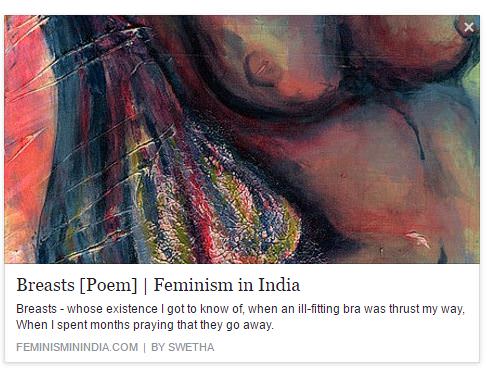 Recently, I was banned again in June 2016 when someone (I will find you, mister) reported an old post of mine about an iconic photo from the Indian feminist history – a bold and unique protest in 2004 in Imphal, Manipur where 12 women protested against the rape and murder of Thangjam Manorama by the Indian army.
Recently, I was banned again in June 2016 when someone (I will find you, mister) reported an old post of mine about an iconic photo from the Indian feminist history – a bold and unique protest in 2004 in Imphal, Manipur where 12 women protested against the rape and murder of Thangjam Manorama by the Indian army.
.@facebook has banned me from posting for 24 hours because some idiot reported an old post on Manorama. I’m fuming. pic.twitter.com/vxBUlDlsEg
— Japleen Pasricha (@japna_p) June 10, 2016
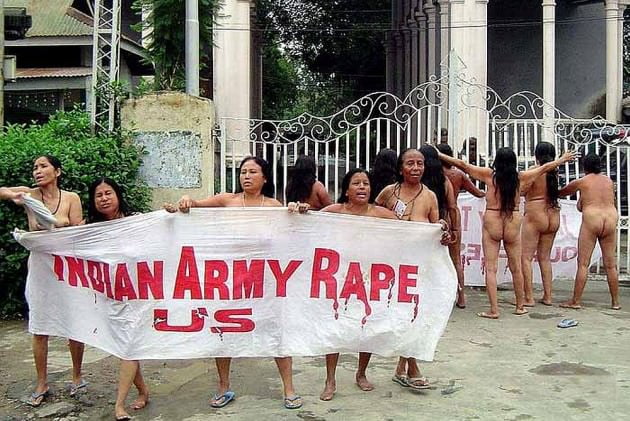
12 women stand naked with a banner that reads ‘Indian army rape us’ to protest against the rape and murder of Thangjam Manorama by the Indian Army.
And most recently, I was banned yet again on November 7, 2016 for three days for sharing a personal narrative by Hira Naaz which ironically talks about how women are made to feel ashamed of their breasts and forced to wear a bra. Well done, Facebook.
Suspended from @facebook yet again for 3 days for sharing this article. Nyaya kaha h? KAHA HAI NYAYA???///https://t.co/YdtYarqEPy
— Japleen Pasricha (@japna_p) November 7, 2016
This is what I received from @facebook – my 4th or 5th suspension or as @adishigupta calls it ‘bad student in the class’ @FeminismInIndia pic.twitter.com/01ay4bUqZY
— Japleen Pasricha (@japna_p) November 7, 2016
This is not the first article documenting Facebook’s unfair ban for posting pictures of breasts and women’s nipples and it will not be the last. Many have written about it. Recently, Facebook was in news for censoring an iconic Vietnam war photo and an awareness video for breast cancer for ‘nudity’.
In an open letter to Mr. Zuckerberg, Espen Egil Hansen, the editor in chief of Aftenposten, a Norwegian daily newspaper, said, “Mark Zuckerberg is the most powerful editor in chief in the world. Tomorrow, there will be another photo. Facebook will have to respond to that.”
While Communications Director Lena Biornstad of Cancerfonden from Sweden said, “We find it incomprehensible and strange how one can perceive medical information as offensive. This is information that saves lives, which is important for us.”
Many people are pissed with Zuckerberg’s policy of ‘nudity’ and vague definition of ‘community guidelines’ and rightly so. In their defence, Facebook issued a statement during the Vietnam war photo controversy and said, “An image of a naked child would normally be presumed to violate our community standards, and in some countries might even qualify as child pornography. In this case, we recognize the history and global importance of this image in documenting a particular moment in time.”
However, not all people receive a statement and public apology from Facebook (certainly not me) who just want to post consensual and affirming pictures and/or artowork of our bodies.
Soraya Chemaly of Women’s Media Center Speech Project has been actively challenging Facebook to recognize gender-based hate and review their community guidelines with respect to nudity and women’s nipples. “They remain steadfast in their ban on women’s nipples when they are not suffering (mastectomies) or sacrificing their bodies (breastfeeding). I have been on a warpath for several years regarding women’s sexual, artistic and political expression,” she says. In her article on the #FreeTheNipple campaign, Chemaly challenges the distorted ideas of ‘obscenity’.
An APC report explains in detail why such arbritrary and sexist policies towards women end up censoring consensual sexual expression and contribute to a conservative mindset that reduces women’s bodies to sex objects. “Such a policy arbitrarily restricts women’s freedom of expression and their rights to bodily autonomy,” the report states.
One could still understand a ban on pornography (although, even that’s debatable), however, by imposing a blanket ban on women’s nipples Facebook is basically saying that women’s bodies are inherently sexual, for the pleasure of cis heterosexual men and can only be seen through the male gaze.
About the author(s)
Japleen smashes the patriarchy for a living! She is the founder-CEO of Feminism in India, an award-winning digital, bilingual, intersectional feminist media platform. She is also an Acumen Fellow, a TEDx speaker and a UN World Summit Young Innovator. Japleen likes to garden, travel, swim and cycle.
